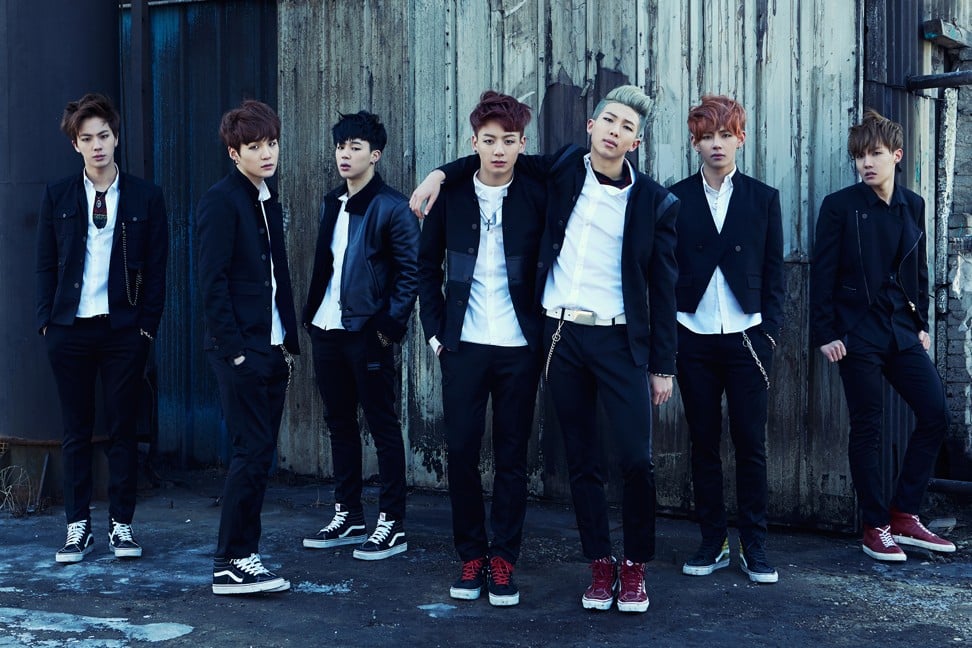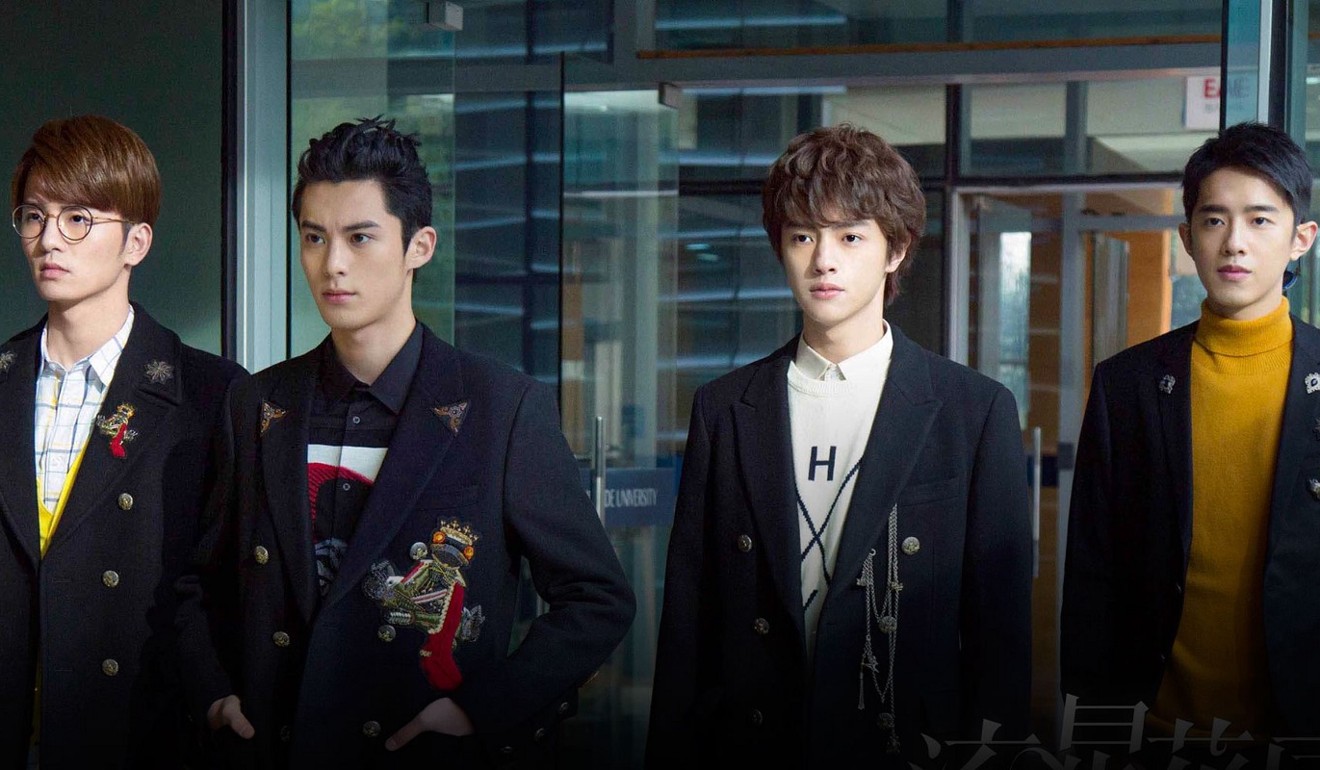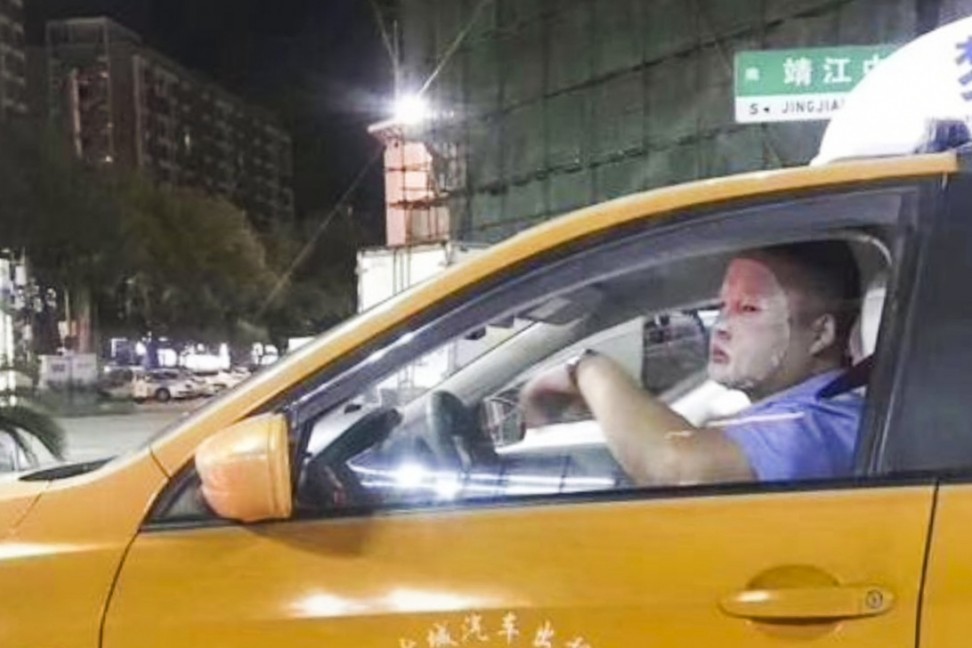
Chinese boys train to be ‘real men’ to fight the BTS idol effect, but the make-up could be here to stay
- Anxious about their boys becoming ‘sissy pants’ men who wear make-up and earrings, some Chinese parents are taking a hard-line approach
- But looking like a K-pop star or Jackson Yee will not make a young man unpopular with Chinese women, while not every male wants to look like a tough guy
It is minus 10 degrees Celsius (14 degrees Fahrenheit) the morning two dozen boys gather at a Beijing park to be transformed into alpha males. The wind bites, worsening nerves as the boys – the youngest seven years old – prepare to strip to their waists for a run.
One of the watching mothers is worried. She wants her son to grow into a macho male, but it’s so cold. She tells him he can keep his shirt on, or perhaps skip the run through Olympic Forest Park.
This is the kind of “feminine” parenting that coach Tang Haiyan fears can ruin boys. Tang, a former schoolteacher, founded the Real Man Training Club to combat what he and others in China see as a masculinity crisis. It is part of a backlash against the make-up- and earring-wearing male pop idols and actors who have gained immense popularity in the country.
“If you are promoting these effeminate figures, it’s a calamity for our country,” Tang said.

In a nation where men dominate political and business leadership and campaigns for gender equality have gained little traction, the debate over what is “effeminate” has become a popular pastime among older conservative residents, and mostly among men.
China’s boy bands and celebrities are influenced by K-pop idols from South Korea like BTS. People such as Jackson Yee – with their delicate beauty, dyed hair and haute couture wardrobes – have a massive following among women in the country. But China’s state-run media condemns the young idols, calling them “sissy pants” and “young fresh meat”. The backlash deepened after a back-to-school TV programme featured the boy band F4. Angry parents attacked the Education Ministry’s decision to hold up the cosmetics-wearing young men as role models; state media warned that a “sick” and “decadent” culture threatened the future of the nation.
This year, a Chinese videostreaming website even started blurring earrings worn by men.
“The gender stereotyping is not just about gender identity itself,” said an author and researcher on Chinese masculinity. “It’s about the reproduction of the nation and how to properly cultivate the next generation.”
Dr Song Geng of the University of Hong Kong said the fear partly reflects deep-seated insecurity about Chinese power, after historical humiliations such as the opium wars and domination of Chinese rulers by foreign imperial powers. “They’re worrying that if Chinese men are so effeminate … then we will become a weak country in future and we cannot compete with our rivals,” he said. “There’s anxiety about the virility of the nation being harmed by those effeminate male images.”
The US’ 25 bestselling singles of all time, from Eminem to Lady Gaga
Screenwriter Wang Hailin says the young men resemble male prostitutes sought after by some affluent older women. “We need to be aware of this effeminacy before it’s too late and deal with it,” said Wang, 48.
He has berated fellow screenwriters, saying they portray men as “wimps, cowards, losers and idiots” and that China should look to Hollywood for strong alpha male characters.
“It has created the impression that Chinese men are all weak, irresponsible and indifferent,” he warned. “Male actors represent national ideology. We cannot encourage the younger generation to look up to them as role models.”

Chinese military leaders seem to share fears about the nation’s men, with the army newspaper People’s Liberation Army Daily complaining that 20 per cent of recruits were not fit enough to pass the fitness test for admission because they were overweight, watched too many cellphone videos, drank too much or masturbated too often.
In the Beijing park, Tang likens his club to a “reserve for alpha males”.
On the morning of the shirtless run, the boys arrive clad in down jackets, but one by one the layers come off. Each boy dons a headband with the words “Real Man”. Their track suits and shirts display slogans in English such as “Power Leader” and “Anything is Possible”.
“I think it’s a good opportunity for him to gradually cultivate a macho character,” said the mother who suggested her boy could skip the run, who gave her surname as Chen. She described her son as shy and introverted and said participating in outdoor camps boosts his confidence.
“If you are a male, you are supposed to have those male traits. If you are a girl, you tend to be softer,” she added. “But I don’t think the entertainment industry has shown good role models for society because the celebrities they put on the big screen exhibit a more feminine side of men. That’s the problem.”
What’s wrong with having a much more diverse image of men? It’s common these days for men to care about their appearance
Li Chao, 21, lives in an plush outer-Beijing apartment with two assistants and a brown toy poodle named Coffee. He is the kind of man many conservatives despise. His hair is artfully mussed and he wears a subtle rose shade on his eyelids, a natural lipstick and pale foundation. He makes US$30,000 a month live-streaming himself applying make-up, an extraordinary sum for a young man without a degree.
At school, troubled by pimples, it bothered him that boys were not supposed to care about their appearance. He got himself some concealer and started asking girls how to apply make-up.
“I felt delighted because every day I would wear make-up, and I felt really fresh and really great,” he said. “It put me in a good mood.”
His father was horrified. “He would get angry, and he would question me. He said you should not do girlie things. You should not look like a girl,” Li said. “He’d say: ‘Stop wearing that. Stop it. You should go outside and play sports.’ I’ll never change him.”
Other Chinese men are also increasingly using cosmetics and facial products. Chen Yiqun, a taxi driver in the eastern city of Linhai, gained internet notoriety when photos of him driving while wearing a moisturising skin mask went viral last year. He was suspended from work for three days and was the butt of social media jokes, but he also found fans online who applauded his facial regimen.

“What’s wrong with having a much more diverse image of men?” Li asked. “It’s common these days for men to care about their appearance.”
Li has 1.5 million followers on the video-streaming site Kuaishou and 2 million on the social media site Weibo, mostly girls and women from 12 to 30.
He waded into the debate on Weibo sparked by the controversial back-to-school TV programme, with many sharing his views: “We should create a tolerant and diverse society. Men should focus on having an independent soul, a righteous heart and a strong sense of social responsibility.”
K-pop’s Seungri: from BigBang idol to face of a scandal
Researcher Zheng Jiawen from Nanjing University’s School of Journalism and Communications contends that the real problem is different.
“China’s real crisis of masculinity isn’t ‘sissy pants’. It’s a generation of men anxious and insecure about their declining social status and their desperation to cling to power,” Zheng wrote on the Shanghai-based website Sixth Tone.
“We must all learn to accept the fact that a delicate face does not mean a weak heart; slender shoulders do not reveal a fragile soul; and a ‘betrayal’ of outdated masculine stereotypes is not a betrayal of the nation.”

